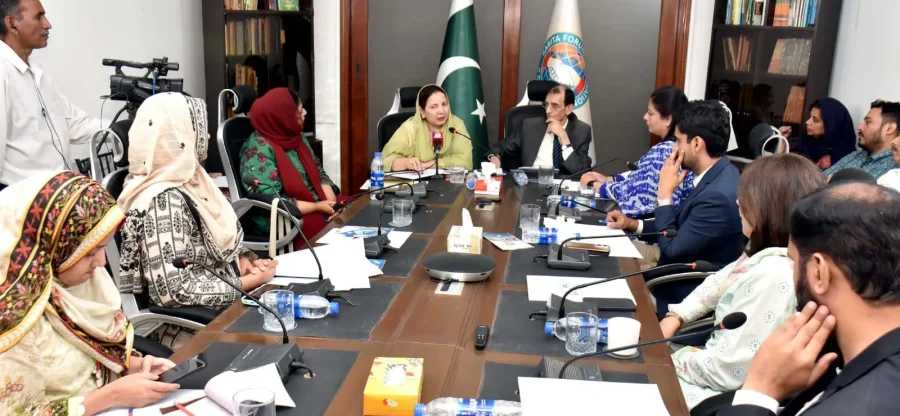Rabita Forum International (RFI) and the Press Information Department (PID) Karachi hosted a session focused on “The Role of Media in Promoting Social, Economic, and Strategic Stability.” The event brought together key figures, including DG PID Ms. IramTanweer, RFI Chairman Nusrat Mirza, PID Information Officer Qasim Farooq, VOA Correspondent Sidra Azhar Dar, and Professor MaheDarakshan from Bahria University.
Nusrat Mirza, Chairman of RFI, opened the session by outlining the objectives of Rabita Forum International and discussing the transformative impact of social media in Pakistan. He noted that while social media has empowered individuals and promoted social justice, it also presents challenges such as misinformation and disinformation, which can incite panic and confusion. DG PID IramTanweer, the keynote speaker, emphasized the need to close the gap between policymakers and the public.
She acknowledged social media’s role in spreading information but stressed the importance of combating fake news through proactive government measures and responsible media practices. “To address the challenges posed by misinformation, the government must be swift in presenting counter-narratives,” she asserted, while also advocating for increased media literacy and youth engagement.
Sidra Azhar Dar highlighted social media’s effectiveness during crises, citing the 2022 floods as an example where social media amplified the voices of affected individuals. She warned against imposing restrictions on social media and the internet, as such measures could further alienate citizens from the state.
Qasim Farooq provided an analysis of social media trends, explaining their influence on public opinion and their role in driving social and economic changes. Professor MaheDarakshan stressed the importance of integrating youth perspectives into policymaking to ensure that policies are inclusive and impactful.
The session concluded with a consensus among the panelists on the need for ongoing dialogue and events to address media-related challenges and promote strategic reforms.









